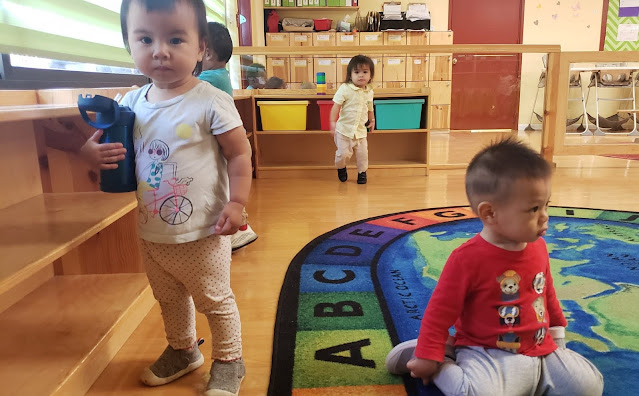Tips for parents on handling challenging behaviors in kids

Buena Park Montessori is an educational institution that follows the Montessori philosophy, focusing on the development of the whole child through a student-centered approach. They offer programs for infants, toddlers, and preschoolers, providing a nurturing and stimulating environment for children to explore and learn at their own pace.

If
you have kids at home who have started going to Preschool,
then you must be knowing that they enjoy solving mysteries. Their brains
are stretched with mystery riddles, while their bodies are exercised by jogging
around.
How
to play Detective Riddles with your kids?
Preschool
mystery riddles are entertaining for young children. The following are some
suggestions for playing detective riddles with your children.
·
Keep puzzles simple.
·
Share simple and quick
detective puzzles.
·
Share clues in the form
of written or visual communications.
·
Make use of the
available space in your home to hide detective puzzles.
·
Play games in both the
interior and outdoor regions of your home.
·
Provide riddles that
must be completed within a certain amount of time.
·
During the game, music
will keep the kids entertained.
·
Make your props.
Benefits
of Detective Riddles for Children:
According
to the Montessori teachers of La
Palma CA, from an early age, mystery puzzles or detective riddles
assist children to improve their awareness of the world and build a critical
thinking approach. Riddles provide a variety of advantages, which are stated
below:
·
Instills Intellectual
Humor in Children: Riddles inspire children, helping them laugh, relax, and
keep their minds working.
·
Learn Problem-Solving
Abilities: Riddles help you develop crucial problem-solving skills.
·
Improve Critical Thinking:
Children begin to think critically when solving puzzles, which improves their
comprehension abilities.
·
Increase Vocabulary:
Riddles assist children in expanding their vocabulary by allowing them to learn
new words, their definitions, and how to use them.
·
Establishing
Relationships: Children form bonds with their peers and their parents.
·
Children share their
knowledge with their peers, siblings, friends, and parents.
Children
enjoy deducing the answers to detective and mystery riddles. They require a
captivating plot. Here Preschool teachers have shared some Mystery
and Detective Riddles (with answers) that you can play with your little ones:
1.
Why did Micky Mouse go to outer space?
Ans
- To meet Pluto.
2.
You can serve me but no one can eat me. Identify me.
Ans
–Tennis ball.
3.
You can catch me but can not throw me. Guess who am I?
Ans
- Cold.
4. A
man was discovered standing in someone's front yard on a cold winter morning.
The yard owner didn't mind at all that this man stood there for several weeks
without moving. The man eventually vanished. Who was he, exactly?
Ans
- Snowman.
5. I
can only exist while there is light; nevertheless, if light falls on me, I will
perish. Is it possible to recognize me?
Ans
- Shadow.
6. We come out at night without being called; however,
we get lost in the day without being stolen. Who are we?
Ans
– Stars.
7. I have
cities without houses. There are mountains, but no trees. There is water but no
fish. Who am I?
Ans
– Map.
8. I can fly but I don’t have wings. I can cry
without eyes. Darkness follows me where I go. What am I?
Ans
– Clouds.
Comments
Post a Comment